Thursday, December 19, 2024. Annette’s News Roundup.
The evil men do lives after them. So let it be with Trump. and MAGA.
In case, you are wondering. There is no good to inter with his/their bones.
Trump pans spending deal, putting it on life support in Congress.
A bipartisan spending deal to avert a shutdown was on life support on Wednesday after President-elect Donald J. Trump condemned it, leaving lawmakers without a strategy to fund the government past a Friday night deadline.
Mr. Trump issued a scathing statement ordering Republicans not to support the sprawling bill, piling on to a barrage of criticism from Elon Musk, who spent Wednesday trashing the measure on social media and threatening any Republican who supported it with political ruin.
It was not yet clear how Speaker Mike Johnson planned to proceed as the package, which was stuffed full of unrelated policy measures as well as tens of billions of dollars in disaster and agricultural aid, appeared to be hemorrhaging support. Some Republicans suggested he was mulling stripping the bill of everything but the spending extension and putting it to a vote, but the fate of such a measure was also very much in doubt.
The blowback from Republicans to the agreement underscored the complications top G.O.P. leaders will have to manage next year when they control all of Congress and face a president with a penchant for blowing up political compromises. It also showed the power of a circle of influential outside players in Mr. Trump’s orbit who appeared willing to punish Republicans if they failed to accede to his wishes.
Even before Mr. Musk began making noise, a swell of Republican lawmakers — both ultraconservatives and some mainstream members — had been furious about the funding measure, which was rolled out on Tuesday night. It began as a simple spending bill to keep government funds flowing past a midnight deadline and into mid-March, but it emerged from bipartisan negotiations laden with $100 billion in disaster aid and dozens of other unrelated policies.
The G.O.P. resistance meant that in order to pass the bill, Mr. Johnson was going to have to rely, yet again, on Democratic votes to pass it, using a special procedure that requires the support of two-thirds of those voting. But by Wednesday afternoon, the backlash to the legislation had spread so far and wide in G.O.P. ranks that it was unclear whether he would even be able to muster a bare minimum of Republicans to partner with Democrats and push it across the finish line.
The bill appeared doomed when Mr. Trump weighed in late Wednesday afternoon, saying lawmakers needed to pass a “temporary funding bill WITHOUT DEMOCRAT GIVEAWAYS,” and said it should be combined with an increase in the debt ceiling, the cap on how much money the United States is authorized to borrow to meet its financial obligations.
“We should pass a streamlined spending bill that doesn’t give Chuck Schumer and the Democrats everything they want,” Mr. Trump wrote in a lengthy statement on social media that he issued jointly with Senator JD Vance, the vice president-elect.
They spoke up after Mr. Musk, who Mr. Trump has tapped to scale back the scope of federal government, had gone on a daylong rampage against the bill, posting nearly nonstop on his social media platform X about how lawmakers needed to kill it. He was joined by Vivek Ramaswamy, another billionaire who is partnering with Mr. Musk on the effort to streamline the government and slash spending.
Republicans gauging support for the legislation said they were bleeding votes as a result of Mr. Musk’s barrage.
“Any member of the House or Senate who votes for this outrageous spending bill deserves to be voted out in 2 years!” Mr. Musk wrote in one post.
Mr. Johnson appeared on “Fox and Friends” on Wednesday morning to make a case for the bill, and said he had spoken to Mr. Musk and Mr. Ramaswamy earlier in the day.
“They said, ‘It’s not directed to you, Mr. Speaker, but we don’t like the spending,’” Mr. Johnson recounted. “I said, ‘Guess what, fellas, I don’t either. We’ve got to get this done because here’s the key: By doing this, we are clearing the decks, and we are setting up for Trump to come in roaring back with the America First agenda.’”
Even before Mr. Trump got involved, typically reliable Republican votes for stopgap funding measures had begun to balk. Senator John Cornyn of Texas called the bill a “monstrosity.”
And anti-spending conservatives were livid.
“The American people wanted change,” said Representative Ralph Norman, Republican of South Carolina. “They didn’t say go out and spend more money, put us more into debt. It’s the opposite of what the American people voted for.”
But just as conservative Republicans and Mr. Musk were railing against the bipartisan deal for adding too much spending to the national debt, Mr. Trump called for raising the debt ceiling, insisting that Republicans must increase it as part of the spending package so the borrowing limit would go up while President Biden was still in the White House.
It reflected a recognition by the president-elect that his party would have a difficult time raising the limit next year when they have full control of Congress, and that he would not want to sign such a measure. Many Republicans refuse to back debt ceiling increases, viewing them as politically toxic.
The borrowing limit is expected to be reached sometime in January, and a failure to increase it would cause a default on the nation’s debt. Mr. Trump acknowledged that he did not want to shoulder the responsibility for doing so.
“Increasing the debt ceiling is not great,” Mr. Trump said in his statement, “but we’d rather do it on Biden’s watch.”
Later, in a separate social media post, he said that any Republican who “would be so stupid” as to vote for a funding extension without raising the debt ceiling “should and will” face a primary challenge.
Democrats, for their part, appeared in no mood to start any new negotiations.
“House Republicans have now unilaterally decided to break a bipartisan agreement that they made,” Representative Hakeem Jeffries of New York, the Democratic leader, said on Wednesday evening. “House Republicans have been ordered to shut down the government and hurt every day Americans all across this country. House Republicans will now own any harm that is visited upon the American people that results from a government shutdown.” (New York Times)
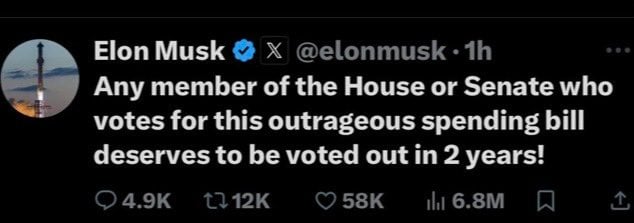
Touch to watch Representatives Jeffries respond to the chaos Musk, Trump and MAGA create.👇
My statement on House Republican chaos, dysfunction and extremism. pic.twitter.com/8wwl0K5TqY
— Hakeem Jeffries (@RepJeffries) December 19, 2024
Governing by chaos is back, but it's telling that this time we don't know who's calling the shots — Musk, Trump or Johnson.
— Senator Chris Van Hollen (@ChrisVanHollen) December 19, 2024
Here's what we do know: we need to fund the government & deliver disaster relief to our communities NOW.
It's time for House Republicans to do their job.
Shots fired from Democratic Senator Jeff Merkley.
— Art Candee 🍿🥤 (@ArtCandee) December 19, 2024
🍿 pic.twitter.com/HOWOmpj5if
Apparently President Musk wants the maga Congress to let the government default. What is his First Lady trump doing about this?
— American Veteran (@amvetsupport) December 19, 2024
On CNN tonight, former Rep Adam Kinzinger (R-IL) is referring to “President Elon” and “Vice President Trump”
— Scott MacFarlane (@MacFarlaneNews) December 19, 2024
Simple facts https://t.co/Ew6fs2lyrA
— Adam Kinzinger (Slava Ukraini) 🇺🇸🇺🇦🇮🇱 (@AdamKinzinger) December 19, 2024
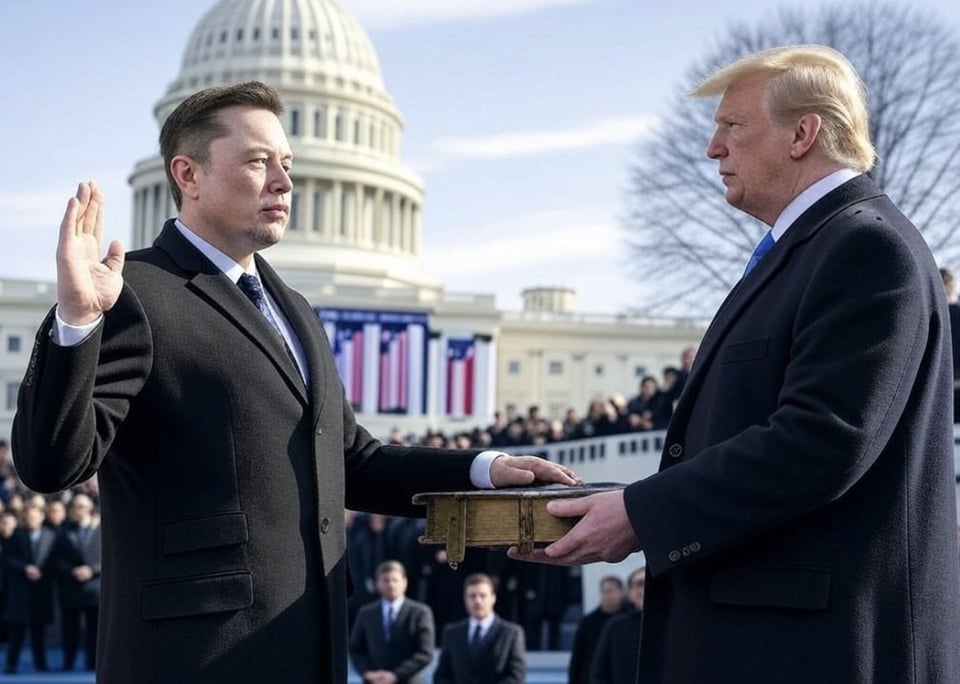
After the inauguration, we should bombard the White House with letters to President Musk. Get ready.
The Wrath of Trump: House Republicans Map a Case Against Liz Cheney
President-elect Donald J. Trump has never been shy about his desire to see his enemies punished. But he often shows a measure of caution about taking credit for potential prosecutions himself.
For years, President-elect Donald J. Trump has made it known that people he believes to be his enemies should be prosecuted.
This week, his allies in Congress laid out a template for how to go after one of them in particular: Liz Cheney, the former Wyoming representative who has been a focus of Mr. Trump’s anger.
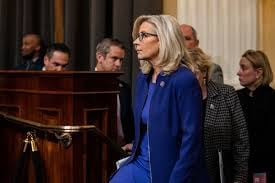
In a report released on Tuesday, House Republicans said Ms. Cheney should face an F.B.I. investigation for work she did for the congressional committee that examined Mr. Trump’s attempts to cling to power after he lost the 2020 election. They accused her of tampering with one of the committee’s star witnesses who gave damning testimony about Mr. Trump.
The recommendation had no binding authority, and any investigation of Ms. Cheney would have to be opened by Mr. Trump’s Justice Department once he enters office. Still, the House subcommittee’s report detailed a road map for what an inquiry might ultimately look like — while also relieving Mr. Trump of the potentially fraught step of explicitly ordering the inquiry himself.
Appearing to have it both ways, Mr. Trump seized on the House report on Wednesday morning, saying that it could present problems for Ms. Cheney, but avoiding responsibility for having been the cause of them.
“Liz Cheney could be in a lot of trouble based on the evidence obtained by the subcommittee, which states that ‘numerous federal laws were likely broken by Liz Cheney, and these violations should be investigated by the FBI,’” he wrote in a post on Truth Social.
While Mr. Trump has never been shy about his desire to see his enemies punished, he has often exercised a measure of caution when it comes to taking credit for potential prosecutions.
In an interview this month on NBC’s “Meet the Press,” for instance, the host Kristen Welker asked him whether he planned to order prosecutions against his adversaries, such as the Biden family.
“I’m not looking to go back into the past,” Mr. Trump said.
He was also asked whether he wanted Kash Patel, his choice to lead the F.B.I., to launch investigations into his opponents.
“I mean, he’s going to do what he thinks is right,” Mr. Trump responded, distancing himself from the process. Then, after explicitly saying he would not direct investigations, Mr. Trump added that if people had been “dishonest or crooked,” there was probably “an obligation” to investigate them.
Mr. Trump likes Mr. Patel as the person to run the F.B.I. because the two share a similar vision of how — and against whom — to use the bureau’s powers, said Daniel C. Richman, a former federal prosecutor and a law professor at Columbia.
“Putting loyalists like Kash Patel in office means that barely articulated whims are likely to be acted on,” Mr. Richman said.
A spokesman for Mr. Trump said on Wednesday that the nation’s “system of justice must be fixed and due process must be restored for all Americans.” Still, he added that Mr. Trump has often said that the Justice Department and the F.B.I. “will make decisions on their own accord because he actually believes in the rule of law.”
Prosecuting political rivals or detractors was a theme of Mr. Trump’s first term in the White House.
During his first presidential campaign, he often joined crowds at his rallies in chanting, “Lock her up!” — a reference to his opponent Hillary Clinton, whom he and other Republicans believed should have been investigated for using a private email server while she was secretary of state. After he won that election, however, Mr. Trump appeared to soften his stance, telling The New York Times editorial board that he did not want to “hurt the Clintons.”
But Mr. Trump, facing a special counsel investigation of his own, changed his mind again in 2018, telling his White House counsel that he wanted to order the Justice Department to investigate Mrs. Clinton. He also wanted them to investigate James B. Comey, the F.B.I. director whom Mr. Trump had fired, leading to the appointment of the special counsel Robert S. Mueller III.
Mr. Mueller investigated whether Mr. Trump’s 2016 campaign had ties to Russia, which the intelligence community had already determined had interfered in the election in order to hurt Mrs. Clinton.
While the White House counsel ultimately declined to approve his plans to investigate Mrs. Clinton, Mr. Trump made clear on social media during his years in office that he believed various people should be prosecuted.
In recent weeks, Mr. Trump has singled out Ms. Cheney in a similar fashion, saying outright that she and other leaders of the Jan. 6 committee should go to jail. He has also suggested, over the course of several months, that Gen. Mark A. Milley, his onetime chairman of the Joint Chiefs of Staff, should be tried for treason, even executed.
Mr. Trump has called for Jack Smith, the special counsel who brought two criminal cases against him last year, to be “thrown out of the country.” And after he was arraigned on the first of Mr. Smith’s indictments, he said that, as president, he would appoint “a real special prosecutor” to “go after” President Biden and his family. (He has since backed away from his position on specifically investigating the Bidens.)
In Mr. Trump’s first term, critics were concerned that he was seeking to violate the post-Watergate norm of Justice Department independence.
Now, Mr. Trump will be entering the White House again with his allies having spent the last four years in search of lawyers who are willing to abide by a maximalist view of presidential power. Some of those lawyers take the view of the unitary executive theory, which argues that the president is the person with lone control over the executive branch, including pockets of seeming independence like the Justice Department.
Mr. Trump is not just relying on the levers of government to go after those he has publicly said are his enemies. He has also taken a direct hand in civil lawsuits against his perceived adversaries in the media in particular.
Over the weekend, ABC News agreed to pay $15 million in damages and $1 million in legal fees to settle a defamation suit he brought against the network, accusing its star anchor George Stephanopoulos of making on-air statements that damaged his reputation.
Mr. Stephanopoulos said several times in a March segment that Mr. Trump had been found by a civil jury to be “liable for rape.” Mr. Trump was found liable for sexual abuse, and while the jury ruled that Mr. Trump had not committed rape under the narrow definition of that term in New York law, the judge later said he had concluded that Mr. Trump’s actions constituted rape as the term is ordinarily understood.
Seemingly emboldened by the victory against ABC, Mr. Trump filed another lawsuit on Monday against The Des Moines Register, saying that the newspaper had engaged in “election interference” by publishing a poll just before Election Day that showed him trailing Vice President Kamala Harris.
The House report on Ms. Cheney, prepared by a Republican-led subcommittee on oversight, was specifically focused on the former representative, who broke with her G.O.P. colleagues over their ongoing support of Mr. Trump in 2021. But she has also infuriated Mr. Trump not only because she helped to lead the congressional investigation into him, but because she crossed party lines in the election and campaigned against him in support of Ms. Harris.
The report claimed that Ms. Cheney may have violated “numerous federal laws” by secretly communicating with Cassidy Hutchinson, a star witness for the Jan. 6 committee, without the knowledge of Ms. Hutchinson’s lawyer.
When Ms. Hutchinson was first approached to provide testimony to the committee, she was represented by a lawyer who had once worked in the Trump administration’s White House Counsel’s Office.
After meeting with Ms. Cheney, she hired a different lawyer and her subsequent public testimony was damaging to Mr. Trump. It included allegations that he had been warned his supporters were carrying weapons on Jan. 6, but expressed no concern because they were not a threat to him.
The report asked the F.B.I. to investigate whether Ms. Cheney’s dealings with Ms. Hutchinson were carried out in violation of a federal obstruction statute that prohibits tampering with witnesses. The report also accused Ms. Hutchinson of lying under oath to the committee several times and suggested that investigators examine whether Ms. Cheney had played any role in “procuring another person to commit perjury.”
Ms. Cheney has denounced the report, saying it “intentionally disregards the truth” about her own committee’s work and “instead fabricates lies and defamatory allegations in an attempt to cover up what Donald Trump did.”
Setting aside the details of Ms. Cheney’s interactions with Ms. Hutchinson, Alan Z. Rozenshtein, a former Justice Department official who teaches at the University of Minnesota Law School, said that the speech or debate clause of the Constitution would likely hinder any inquiry into Ms. Cheney. That provision, which is intended to protect the separation of powers, generally shields lawmakers from being questioned outside of Congress about official conduct.
“The speech or debate clause is very broad,” Mr. Rozenshtein said, “and would be a substantial, if not insurmountable, obstacle to any investigation into Liz Cheney for her actions as part of the committee.”
Chuck Rosenberg, a former U.S. attorney and F.B.I. official, also said that an investigation of Ms. Cheney could be difficult to push toward criminal charges.
“I believe that in order to go to jail there has to be compelling evidence that you committed a crime,” Mr. Rosenberg said. “That does not seem to be the case here.” (New York Times).
Thoughts on this? 👇
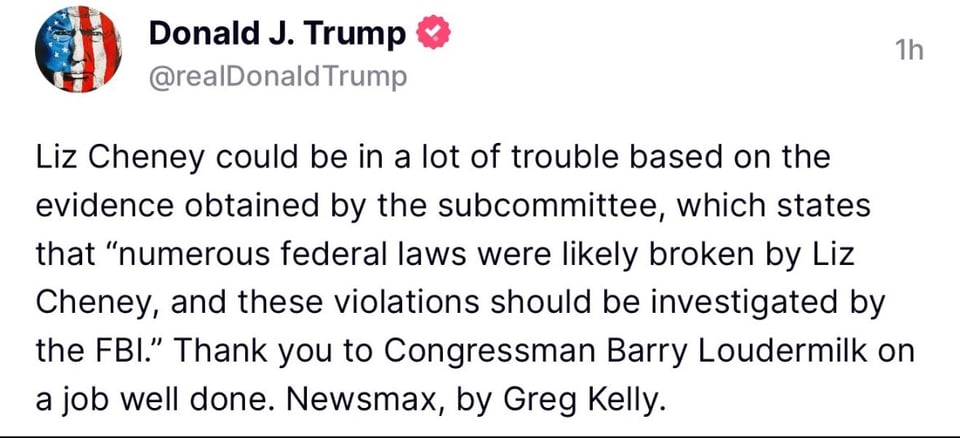
Thoughts on this? 👇
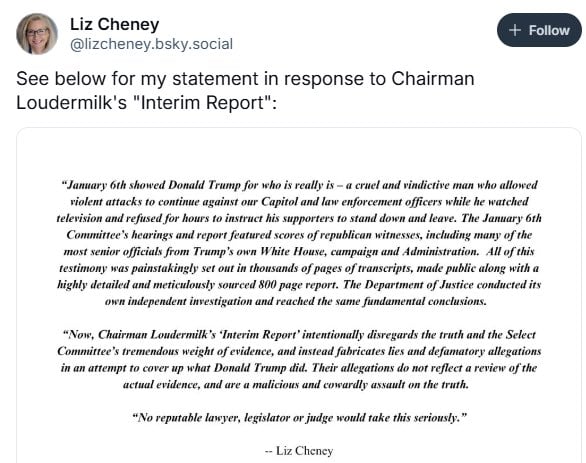
Thoughts on this? 👇
I think it would be a great Idea for Joe Biden to give Liz Cheney, Cassidy Hutchinson, and all the others who stood up for Democracy in the Jan. 6 Hearings a Presidential Medal of Freedom.
— Steven Eugene (Collard Green) (@footster2) December 17, 2024
Last evil for today.
Two for one.
Trump announces that billionaires no longer have to comply with environmental regulations
— Judd Legum (@juddlegum.bsky.social) 2024-12-11T00:58:45.852Z
A recent photo.
Share it with friends.

These Senators will lead the charge for us.
SCOOP - Chuck Schumer's picks for Senate Democratic ranking members.
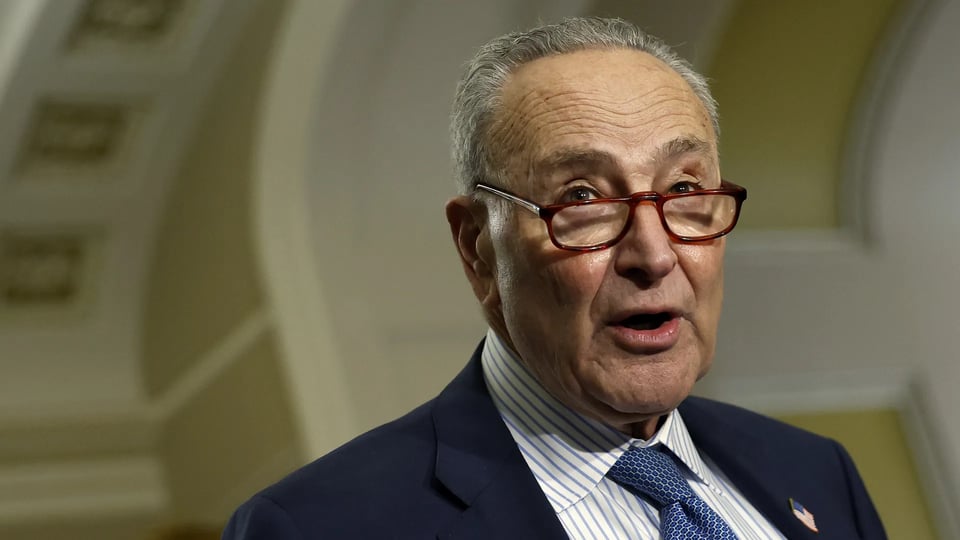
Senate Majority Leader Chuck Schumer (D-N.Y.) will unveil on Wednesday his list of Senate Democrats who get top committee positions, Axios has learned.
Why it matters: These Senate Democrats will Schumer's top lieutenants to fight against Republican nominees and legislative priorities starting next year.
Ranking members are the top member of the minority party on each committee, giving them a prominent voice in the resistance against the majority's platform.
There are new faces for Schumer on prestigious panels like Banking, Foreign Relations and Energy.
The assignments:
Sen. Amy Klobuchar, Agriculture
Sen. Patty Murray, Appropriations
Sen. Jack Reed, Armed Services
Sen. Elizabeth Warren, Banking
Sen. Maria Cantwell, Commerce
Sen. Martin Heinrich, Energy
Sen. Sheldon Whitehouse, Environments and Public Works
Sen. Ron Wyden, Finance
Sen. Jeanne Shaheen, Foreign Relations
Sen. Bernie Sanders, Health, Education, Labor and Pensions
Sen. Gary Peters, Homeland Security
Sen. Mark Warner, Intelligence
Sen. Dick Durbin, Judiciary
Sen. Kirsten Gillibrand, Aging
Sen. Jeff Merkley, Budget
Sen. Maggie Hassan, Joint Economic
Sen. Alex Padilla, Rules
Sen. Ed Markey, Small Business
Sen. Richard Blumenthal, Veterans' Affairs
Sen. Chris Coons, Ethics
Sen. Brian Schatz, Indian Affairs
(Axios)
Some good to end the Roundup.
It is clearly wrong for one to have so much while others have so little, but here is one person trying to do good, given the system.
MacKenzie Scott has given away over $19 billion in the last 5 years and experts say she's 'changed entire fields like affordable housing' | Fortune.
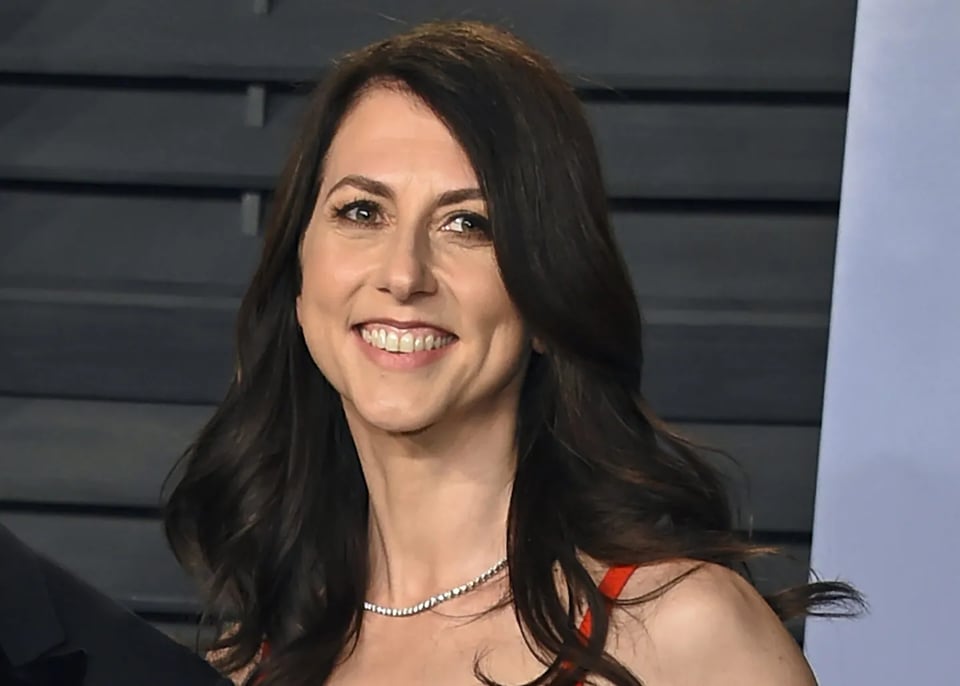
Billionaire author and philanthropist MacKenzie Scott acknowledged another $2 billion in donations in a blog post on Wednesday, bringing the total she’s given away since 2019 to $19.2 billion.
She also revealed new information about how she was managing her wealth, saying she had directed advisors to invest her funds into “mission-aligned ventures.” Most of the grants she made in 2024, she said, went to bolstering economic security and opportunities..
“I’ve asked the investment team helping me manage the assets I’m working to give away to source funds and companies focused on for-profit solutions to these challenges,” Scott wrote. That is in contrast to “withdrawing funds from a bank account, or from a stock portfolio that increases the wealth and influence of leaders who already have it.”
Most of Scott’s wealth comes from shares of Amazon that she received when she divorced the company’s founder, Jeff Bezos. Forbes estimates her current wealth to be $31.7 billion, even after giving away her money for five years.
Gabrielle Fitzgerald, founder and CEO of The Panorama Group, has researched Scott’s giving and provided advice and support for nonprofits who have received Scott’s gifts. She said she sees a growing focus in Scott’s giving on issues of poverty.
“She is creating an amazing role model for philanthropists, although I don’t see very many that have followed her role modeling,” Fitzgerald said. “But it really shows that it’s easy to give away a lot of money to good groups.”
In announcing the gifts on her Yield Giving website, Scott mulled over the meaning of “investing,” writing that it “seems to have undergone a kind of semantic shriveling. On the list of its big, beautiful, original definitions? To devote resources for a useful purpose. To endow with rights. To clothe.”
Scott, who does not comment on her giving beyond the rare post on her website, has shaken up the nonprofit sector with her embrace of “trust-based philanthropy,” providing big grants with no strings attached to over 2,450 nonprofits.
In 2024, she also gave repeat gifts to several organizations — something of a new development in her giving, which has set a high bar for how much and how fast megadonors can give. Two organizations, CAMFED, which supports girls education in Africa, and Undue Medical Debt, which was formerly called RIP Medical Debt, both got third donations from Scott this year.
Grantees say that when Scott’s team notifies them of grants they say not to expect additional support. So it was a surprise for Shaun Donovan, CEO of the affordable housing organization Enterprise Community Partners, when he got the news of a second, major donation.
“I was taking my luggage off the security screener at LaGuardia Airport and my phone rang and I was told that MacKenzie Scott was awarding us another $65 million,” Donovan said in an interview in November.
His organization had received $50 million from Scott in 2020, making them one of the nonprofits that has received the most funding from Scott, based on grant data made public on Yield Giving. About 500 organizations have not disclosed the amount of funding they’ve received from Scott.
“We were not expecting their second gift. Every time they award this funding, they’re very clear that organizations should not expect it,” Donovan said, adding his advice is, “Really treat it that way. Don’t use it for regular operating expenses. Don’t use it for things that will create a cliff or a hole in your budget for your organization.”
This year was already a standout in Scott’s giving because it was the first time that she awarded grants through an application process. In March, she announced the recipients of an “open call” for applications from nonprofits. She surprised recipients by awarding more money to more organizations than she had initially promised, committing $640 million to more than 360 nonprofits.
In one measure of the demand for the large and unrestricted grants she makes, 6,353 nonprofits applied through the nonprofit Lever for Change, which ran the “open call” for Scott. Ultimately, 279 nonprofits were awarded $2 million, while 82 organizations received $1 million each. Previously, organizations have said they’ve responded to questions from an anonymous donor who turned out to be Scott or just received an email or cold call without any application at all.
The fact that her grants are unrestricted, meaning that nonprofits can use them however they want to further their charitable purpose, is part of what makes them so valuable, Donovan said. Five years into her philanthropic blitz, he said it’s now possible to see her impact across whole sectors.
“The scale of this giving has really not just changed individual organizations but changed entire fields like affordable housing,” he said. (Fortune).